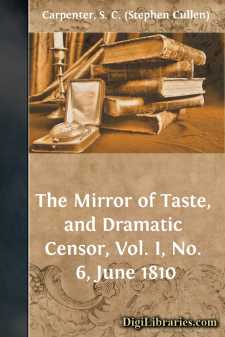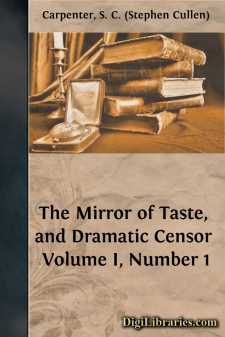Categories
- Antiques & Collectibles 13
- Architecture 36
- Art 48
- Bibles 22
- Biography & Autobiography 816
- Body, Mind & Spirit 145
- Business & Economics 28
- Children's Books 18
- Children's Fiction 14
- Computers 4
- Cooking 94
- Crafts & Hobbies 4
- Drama 346
- Education 58
- Family & Relationships 59
- Fiction 11831
- Foreign Language Study 3
- Games 19
- Gardening 17
- Health & Fitness 34
- History 1378
- House & Home 1
- Humor 147
- Juvenile Fiction 1873
- Juvenile Nonfiction 202
- Language Arts & Disciplines 89
- Law 16
- Literary Collections 686
- Literary Criticism 179
- Mathematics 13
- Medical 41
- Music 40
- Nature 179
- Non-Classifiable 1768
- Performing Arts 7
- Periodicals 1453
- Philosophy 66
- Photography 2
- Poetry 897
- Political Science 203
- Psychology 45
- Reference 154
- Religion 516
- Science 126
- Self-Help 86
- Social Science 82
- Sports & Recreation 34
- Study Aids 3
- Technology & Engineering 59
- Transportation 23
- Travel 463
- True Crime 29
Our website is made possible by displaying online advertisements to our visitors.
Please consider supporting us by disabling your ad blocker.
The Mirror of Taste, and Dramatic Censor, Vol. I, No. 4, April 1810
Categories:
Description:
Excerpt
ORIGIN OF COMEDY—ARISTOPHANES—DEATH OF SOCRATES.
Though the term "tragedy" has from the first productions of Æschylus to the present time, been exclusively appropriated to actions of a serious nature and melancholy catastrophe, there is reason to believe that it originally included also exhibitions of a pleasant, or comic kind. The rude satires, and gross mummery which occupied the stage, or rather the cart, of Thespis, were certainly calculated to provoke mirth in the multitude. By what has already been shown, the reader is apprised that the word, in its original sense, bore no relation whatever to those passions and subjects, to the representations of which it is now applied; but meant simply a dramatic action performed at the feast of the goat, in honour of Bacchus. Thus the different provinces of the drama then undistinguished, were confounded under one term, and constituted the prime trunk from which sprung forth the two branches of tragedy and comedy separately—the first in point of time usurping the original title of the parent stock, and retaining it ever after.
Why human creatures should take delight in witnessing fictitious representations of the anguish and misfortunes of their fellow-beings, in tragedy, and, in comedy of those follies, foibles and imperfections which degrade their nature, is a question which many have asked, but few have been able to answer. The facts are admitted. Towards a solution of their causes, let us consider what is said on the subject of tragedy in that invaluable work "A philosophical inquiry into the origin of our ideas of the sublime and beautiful."
"It is a common observation," says the author, in the chapter on sympathy and its effects, "that objects which in the reality would shock, are, in tragical and such like representations, the source of a very high species of pleasure. This taken as a fact, has been the cause of much reasoning. The satisfaction has been commonly attributed, first to the comfort we receive in considering that so melancholy a story is no more than a fiction; and next to the contemplation of our own freedom from the evils which we see represented. I am afraid it is a practice much too common in inquiries of this nature, to attribute the cause of feelings, which merely arise from the mechanical structure of our bodies, or from the natural frame and construction of our minds, to certain conclusions of the reasoning faculty on the objects presented to us: for I should imagine that the influence of reason, in producing our passions, is nothing near so extensive as is commonly believed.
"To examine this point, concerning the effect of tragedy in a proper manner, we must previously consider how we are affected by the feelings of our fellow-creatures, in circumstances of real distress. I am convinced we have a degree of delight, and that no small one, in the real misfortunes and pains of others; for let the affection be what it will in appearance, if it does not make us shun such objects, if, on the contrary, it induces us to approach them, if it makes us dwell upon them, in this case we must have a delight or pleasure of some species or other in contemplating objects of this kind....





